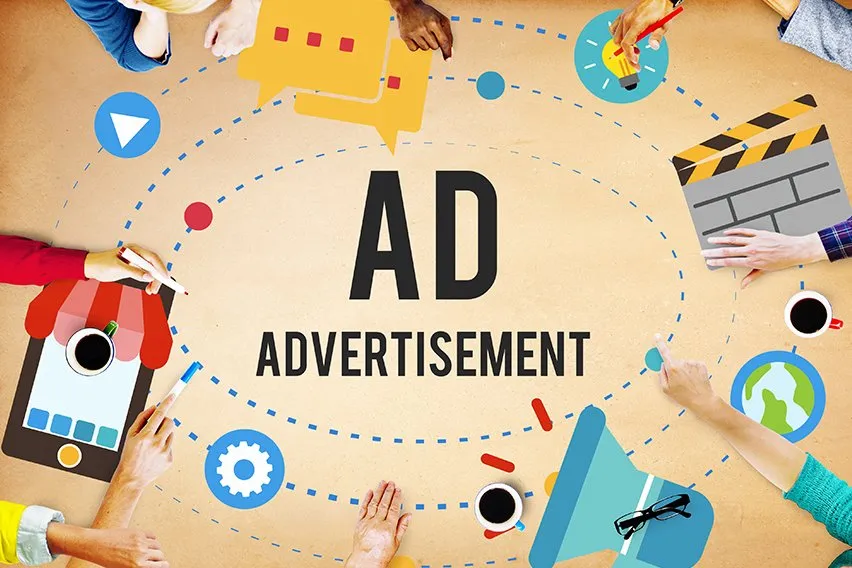5 Best Advertising Strategies for Small Businesses

If you want to grow your small business, you probably want to advertise. When done effectively, advertising can bring large numbers of customers to your business. And the expenses are tax-deductible, so you’re not spending quite as much as you might think.
But if you don’t know much about advertising, it can be difficult to get started. Here are five strategies to put your first ad campaign into action.
Here’s What We’ll Cover:
4. Choose Your Advertising Strategy
1. Know Your Customers
To craft an effective ad campaign, you first need to know your target audience. Most likely, this involves getting to know your existing customer base. Think of it this way. Your potential customers are probably a lot like your current customers. So scale your business by attracting more of the same crowd.
At the same time, remember that the customer doesn’t live in a vacuum. Do they get to decide what is purchased? Or should you really be targeting their employer? Spouses often purchase for each other, and parents often purchase for children.
As a small business owner, you have one major advantage over big corporations. You probably know many of your customers personally! See if you can interview a few of them, or send out a questionnaire. You can sweeten the pot by offering a discount code or similar incentive to customers who participate.

2. Define Your Goals
The next step is to determine the role of advertising in your business plan. The most obvious answer is “sales,” but that’s not always the case. You may want to focus on other metrics to drive sales in the long term.
For example, you might want to boost brand awareness, or grow your social media following. Those things won’t automatically provide a sales boost. But they’ll give you more opportunity to reach potential customers in the future.
3. Choose Your Media
Now that you know your goals, it’s time to figure out what types of ads you want to run. For example, let’s say you want to grow your social media following. In that case, social media advertising makes the most sense.
But there’s a place for every advertising platform, depending on who you’re trying to reach. These include direct mail, video ads, radio ads, and even old-school newspaper advertising. Local businesses can also benefit from outdoor advertising – billboards and similar signage.
Each channel has its own benefits and drawbacks. TV advertising campaigns, for instance, can provide a massive boost in sales. But even a “cheap” TV ad campaign is more expensive than most web advertising.
Also Read: Best Advertising Tactics for Small Businesses
4. Choose Your Advertising Strategy
Your media type determines where you reach your customers. Your advertising strategy determines how you convince them to buy your product. The most popular method is emotional, since emotions are a powerful motivator. Emotional advertising can take many forms, but they generally appeal to our needs or our fears.
Appeals to need include the need for belonging, acceptance, or security. Appeals to fear include the fear of death, illness, or social stigma. Perhaps the most powerful appeal of all is the fear of missing out, often called simply “FOMO.”
That said, not all advertising campaigns rely on emotion. It can be just as easy to entice people by offering them a promotion. Companies often advertise sales, free samples, and two-for-one deals. If you make people feel that they’re getting a great deal, they’re more likely to buy.
Some companies use facts and statistics to sell their products. For example, a popular sanitizer brand promises to kill more than 99.99% of germs. Statistics can be particularly effective for products and services where legitimacy matters.
Finally, many ad campaigns rely on the power of good old-fashioned humor. Think of Geico’s numerous successful campaigns. What does a gecko or a caveman have to do with car insurance? Absolutely nothing! But it puts the Geico brand in our heads. When it’s time to buy car insurance, they’re one of the first companies that come to mind.

5. Perform a Test Run
The last thing you want to do is spend your entire advertising budget on a campaign that flops. Instead, it’s better to perform a limited test to see if you get any results. Because you can easily access analytics, test runs are particularly easy to perform with web campaigns.
If the ad performs well, you can move on to a full-scale campaign. If it doesn’t, you can return to the drawing board with your remaining budget.
Key Takeaways
Effective advertising strategies come in all shapes and sizes. From online advertising that focuses on your target audience to a broader campaign, there are many options. The important thing is to know your audience and know how you’re going to reach them. After that, everything else is a matter of following the process. Spend wisely and perform a test run, and you’ll soon have a successful advertising program.
Best Types of Advertising for Small Businesses
RELATED ARTICLES

 What Is an API Key, and How Are They Used?
What Is an API Key, and How Are They Used? Top 10 Sales Tips & Strategies (Beginner & Advanced)
Top 10 Sales Tips & Strategies (Beginner & Advanced) What Is Imputed Income? Definition & Examples
What Is Imputed Income? Definition & Examples What Is Retention? Definition, Strategies, and Benefits
What Is Retention? Definition, Strategies, and Benefits Top Sole Proprietorship Advantages and Disadvantages
Top Sole Proprietorship Advantages and Disadvantages